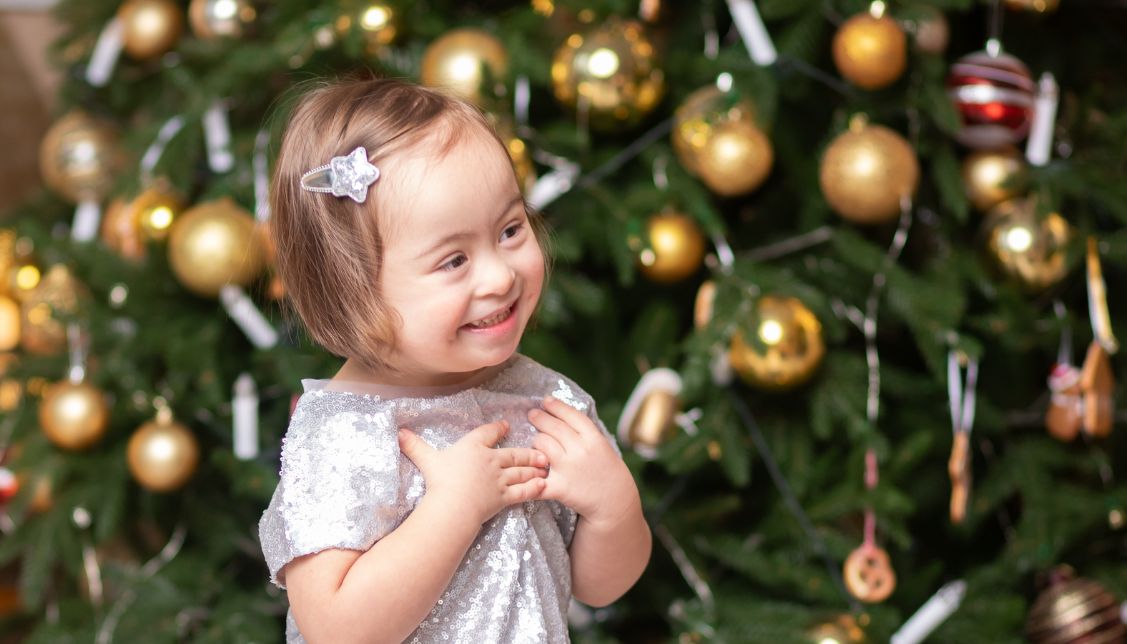 Add My Company
Add My Company

Christmas can be an exciting yet challenging time for children with Down syndrome, as significant changes to their daily routine may cause anxiety. Visitors, school holidays, unfamiliar foods, and festive decorations can all be overwhelming, making it important to create a calm, inclusive environment while maintaining some elements of routine—particularly at bedtime and mealtimes.
There are an estimated 47,000 people with Down syndrome in the UK. This genetic condition occurs when a baby has an extra copy of chromosome 21, leading to a range of intellectual and physical symptoms, including delayed speech development, reduced muscle tone, and cognitive impairments.
To ensure a stress-free and enjoyable festive period, families can adapt holiday traditions to suit their child's needs, creating a more inclusive and engaging Christmas experience for all.
Challenges Children with Down Syndrome May Face
For children with Down syndrome, Christmas celebrations present unique challenges:
- Sensory overload from lights, decorations, and loud noises
- Difficulties with fine motor skills, making some crafts and games challenging
- Anxiety due to changes in routine or unfamiliar events
Families can modify traditional activities to make them more accessible. For instance, baking festive cakes and making simple crafts can be enjoyable and beneficial, as they enhance fine motor skills. Paper chains, handmade Christmas cards, and easy-to-handle decorations can be fun activities requiring minimal precision.
Rather than decorating the house in one overwhelming day, consider spreading it out over several weeks, allowing your child to gradually adjust to the changes.
Sensory-Friendly Christmas Activities
Making sensory-conscious choices can help children feel more at ease. Consider the following:
- Non-flashing fairy lights for a calm and cosy atmosphere
- Natural decorations (wooden ornaments, pinecones) rather than excessive glitter and tinsel
- Sensory bottles, filled with water, glitter, or small floating objects to help children focus and self-regulate
- Tactile toys, such as soft textured balls, sticker books, puzzles, and colouring books
Toys should be chosen with care. Scented Playdough is a great option, as it encourages creativity, improves fine motor skills, and provides sensory exploration opportunities.
Music and Singing
Music is a powerful tool for children with Down syndrome, helping with communication, memory, and emotional expression. Learning Christmas carols and rhymes can enhance language skills and cognitive abilities, while playing simple instruments like toy keyboards and recorders supports motor skills and breath control.
Festive Food and Mealtime Adaptations
The Christmas meal is a special family moment, but children with Down syndrome may struggle with new foods. Some may prefer their usual meals, so it's important to have familiar options available.
If the festive meal environment becomes overwhelming, allow your child to take a break in a quiet space. Spending time with their favourite toys in a calm room may help them recharge and rejoin the celebration later.
The Importance of Sleep
A consistent sleep routine is crucial for a child’s well-being, particularly during the busy Christmas period when they may experience sensory overload.
Specialist beds for children with Down syndrome can support a healthy sleep routine, helping them feel safe and comfortable. Studies show that 40% of children aged 7-11 with Down syndrome struggle to fall asleep, with 51% waking frequently due to breathing difficulties or mental stimulation.
Although Christmas routines may shift, maintaining a familiar bedtime schedule can help children feel secure and better manage the excitement of the festive season.
A Thoughtful, Inclusive Christmas
By making small adjustments, families can ensure that Christmas remains a joyful and inclusive experience for children with Down syndrome. Creating a predictable, calm environment, offering sensory-friendly activities, and respecting their individual needs will help them feel safe and happy throughout the festive period.
For more information on Christmas Traditions for Children with Down Syndrome talk to Kinderkey Healthcare Ltd

